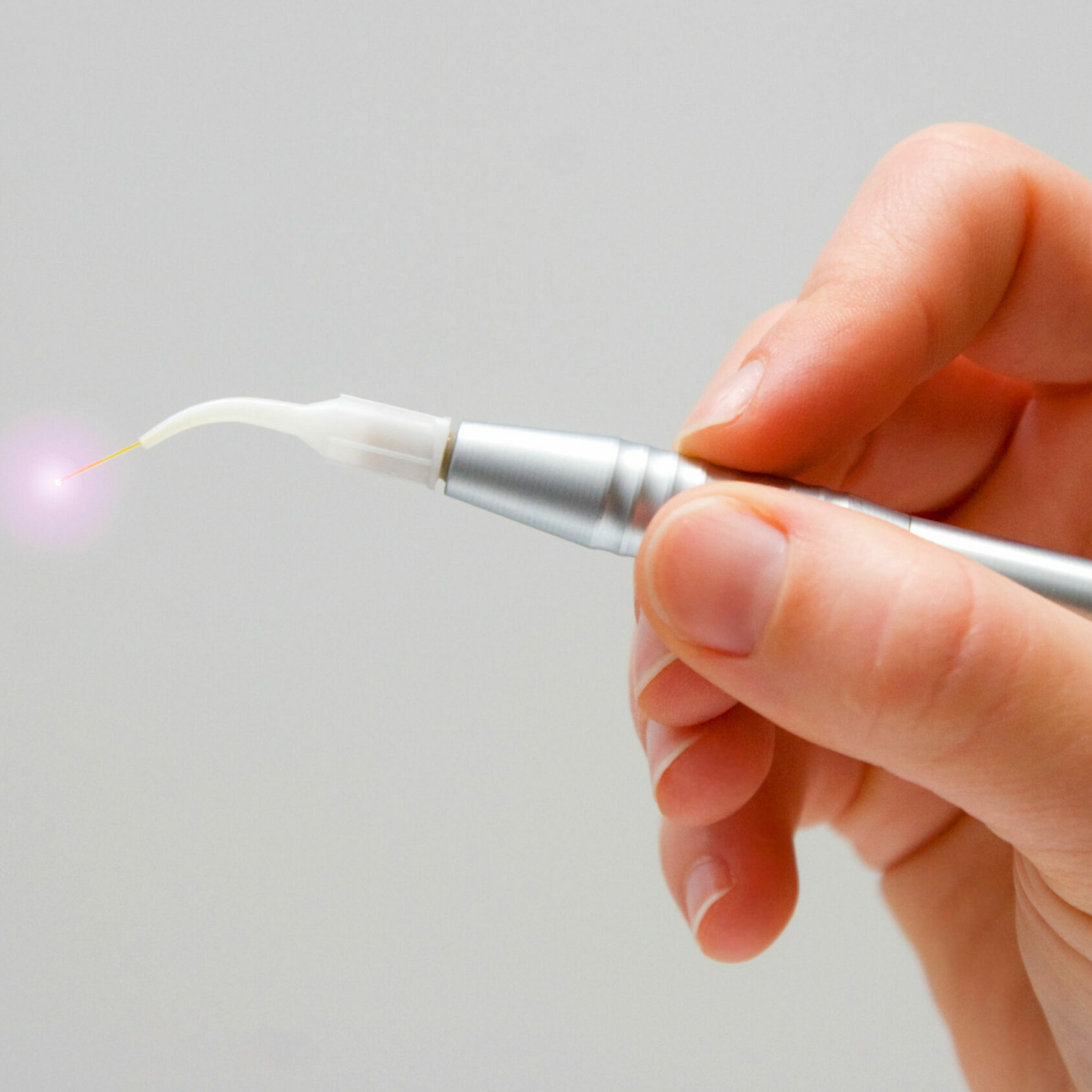This is an exciting time in dentistry. New dental technologies are being proven and are starting to see wider adoption in our field—bringing with them better results for our patients.
Oceana Dental keeps up to date with the latest research and technology to serve you better. Here are just a few of the technologies that we’re using.
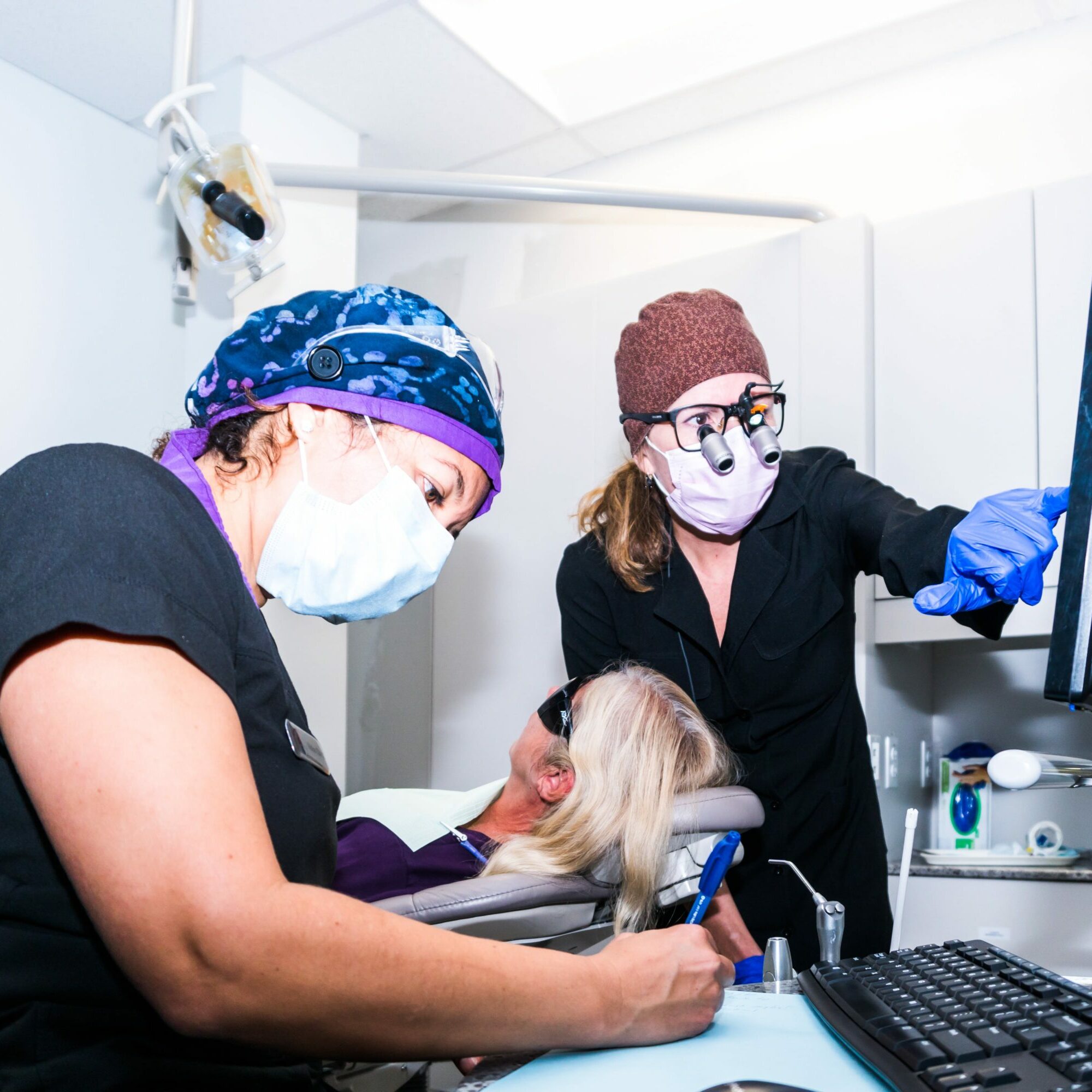
Digital dentistry
Computers have revolutionized dentistry, as they’ve changed so many other aspects of our lives. Digital dentistry encompasses any computer-assisted technologies that go beyond traditional mechanical and electrical tools. At Oceana Dental, we use digital technologies like:
- Low-radiation digital x-rays.
- Cone beam computed tomography (CBCT) scans.
- 3D-guided surgery for dental implants.
- Computer-aided design and computer-aided manufacturing (CAD-CAM).
- Soft tissue laser.
These technologies allow us to be more proactive and treat patients more quickly and with greater precision.
Digital radiographs (x-rays)
Digital radiographs are the latest approach to x-rays. The advantage of digital radiographs is that they expose you to much less radiation than traditional x-rays—in fact, less radiation than what you receive from the environment in a single day.
X-rays allow us to see problems below the gumline as they develop, and treat them before they become too serious.
They allow us to see cavities in hard to see spaces between your teeth, problems with bone loss due to gum disease, and any abscesses or potentially cancerous growths.
For kids and teens, x-rays give us the ability to see how adult teeth are forming and how wisdom teeth are positioned.
3D digital imaging
While 2D x-rays have many uses, being able to see information in full 3D is changing how dentists diagnose problems and plan treatments.
Cone beam computed tomography scanning, or CBCT, allows us to see in much greater detail. Using computer software, we can rotate and zoom to view your blood vessels, nerves and other soft tissues as well as teeth and bone.
We can take up to 600 individual images of an area with a handheld scanner, including inside your mouth. Additional CBCT advantages include:
- We can plan procedures to avoid nerves and blood vessels as much as possible.
- It’s fast, so we can understand, plan and treat in the same appointment more often.
- It’s much better at detecting abnormalities early on, including tumors that we should check for cancer.
- It locates your maxillary sinus precisely so we can make sure the implant won't penetrate it.
- We can pinpoint the best locations and angles for implants.
It’s one of several technologies that has allowed us to give a better experience to our patients.

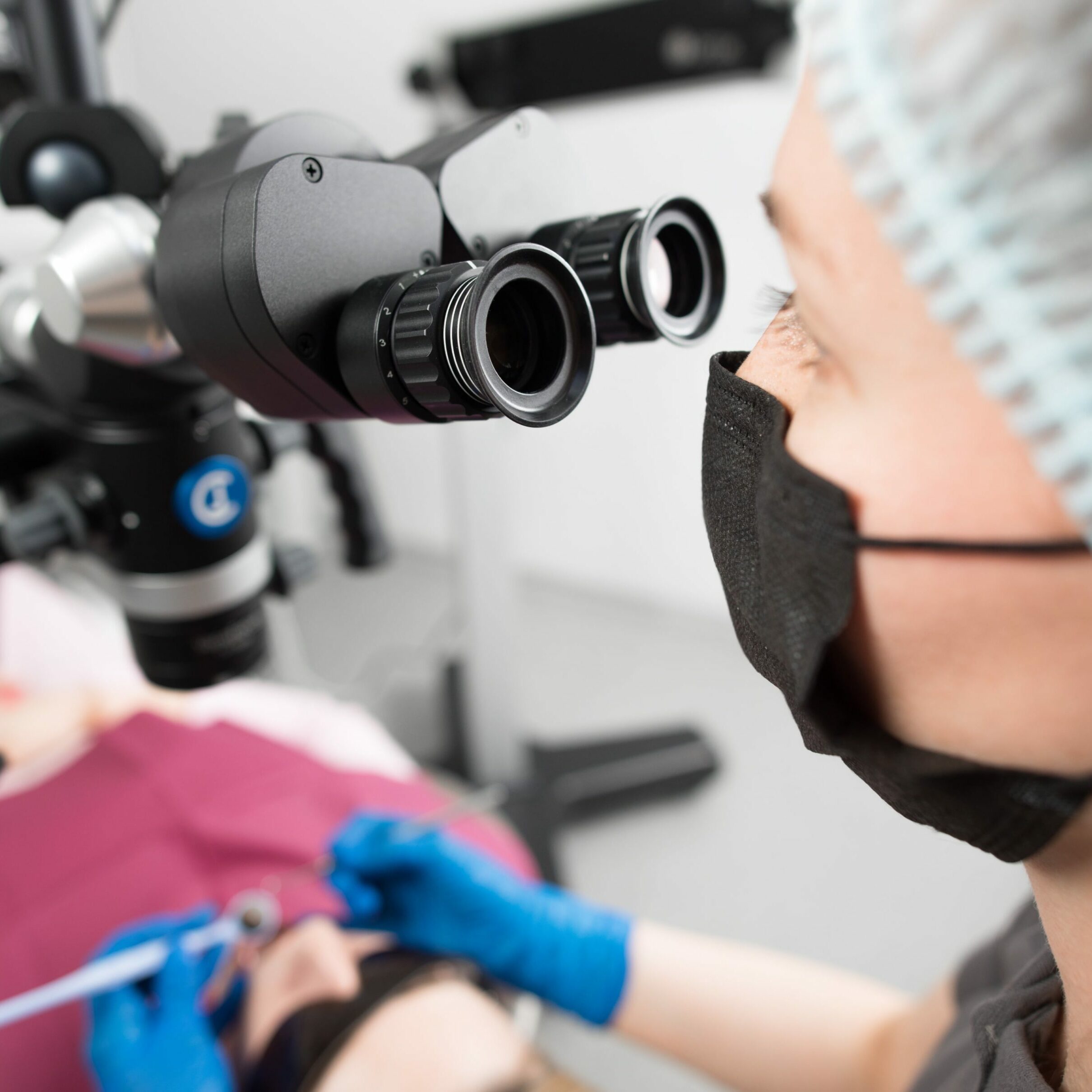
Microscope-enhanced dentistry
When performing delicate procedures, we use a microscope that magnifies an area to 14 times its original size. This allows us to be more precise in our work, make smaller incisions, and gives you a faster recovery time, less chance of infection, and reduced scarring.
Our microscopes aren’t like the ones you’ve used in school. They’re much larger, and are suspended over your chair on an arm, so we can position them exactly where we want them. We can view your mouth through the eyepiece while doing procedures, but the picture is also viewable on a TV screen so we can show our dental assistants—and you—what’s happening in real time.
Soft-tissue lasers
Over the last 20 years, soft tissue lasers have been proven effective in a wide variety of procedures. They are much gentler, allowing us to make smaller “cuts”, and require less or no anaesthetic. Soft tissue lasers also seal blood vessels and nerves as we work, reducing the need for stitches.
They’re also helpful in treating gum disease, as they can be used to target bacteria and mineralized plaque below the gum line while leaving healthy tissue untouched. Laser therapy can be used in place of, or in combination with, traditional planing and scaling.
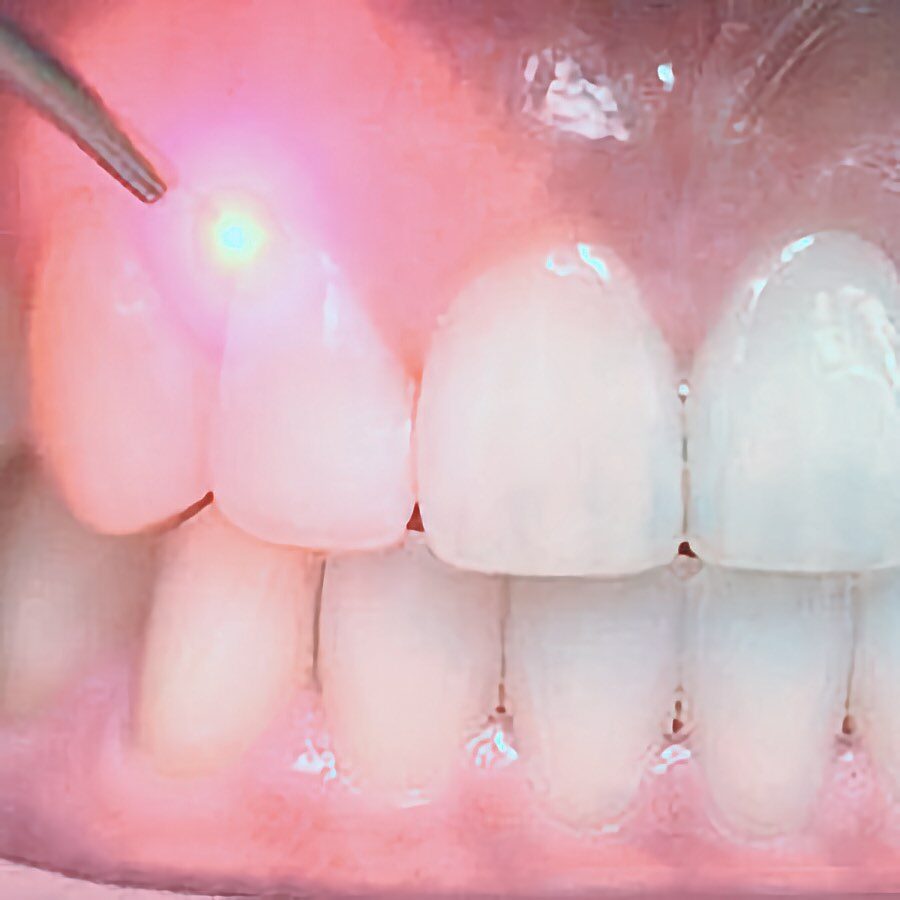
iTero Scanner
Obtaining an accurate model of a patient’s teeth is important, and the iTero Scanner is a powerful diagnostic and treatment-planning tool that helps get the job done. This device works by scanning the patient’s mouth to create a 3D visualization of the entire area. These scanners feature a high-definition screen that displays the digital dental images as they’re captured in real-time. The iTero device is also integrated with Invisalign technology, providing patients with the ability to view a realistic rendering of their “future smile” after their treatment! To learn more about this great technology, read here.
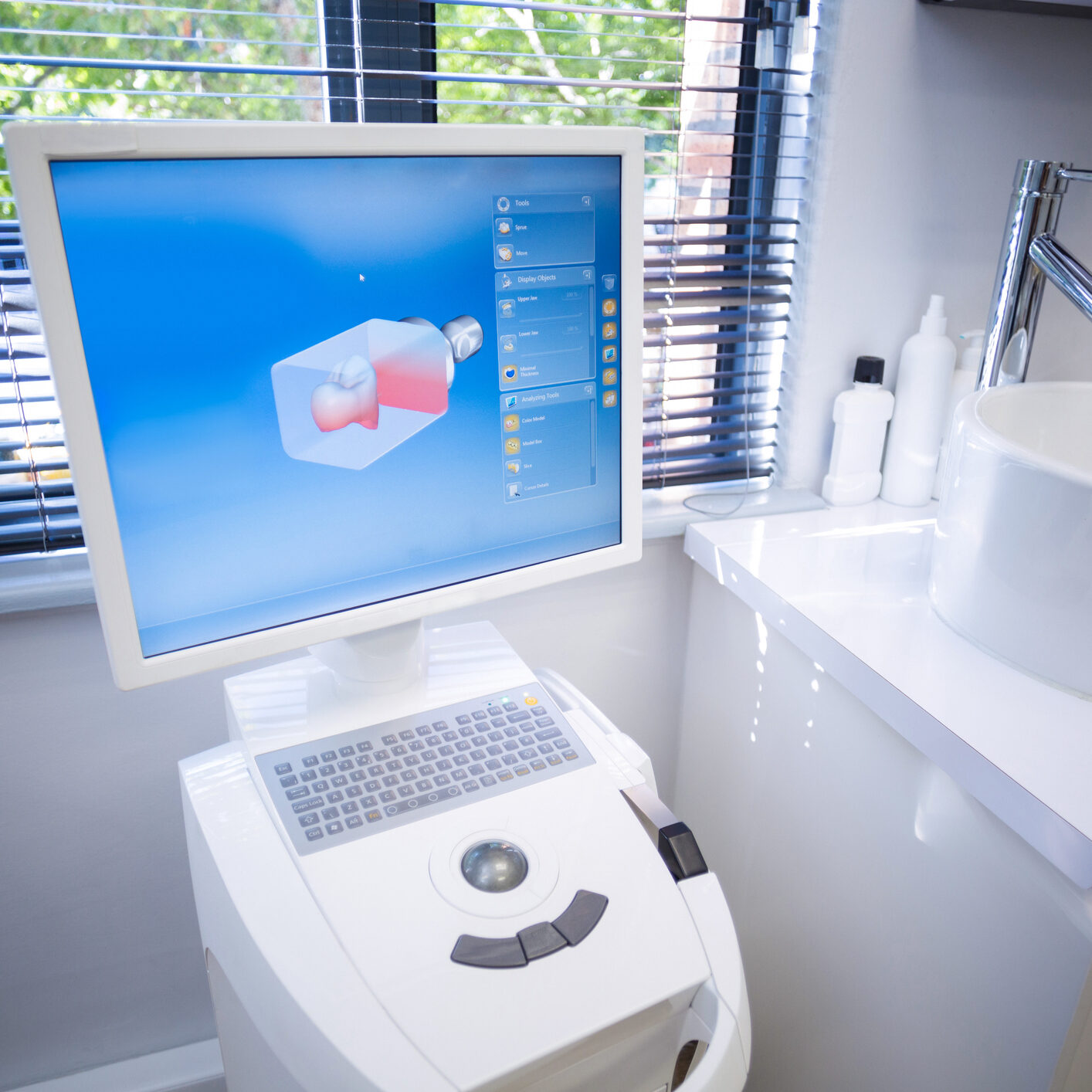
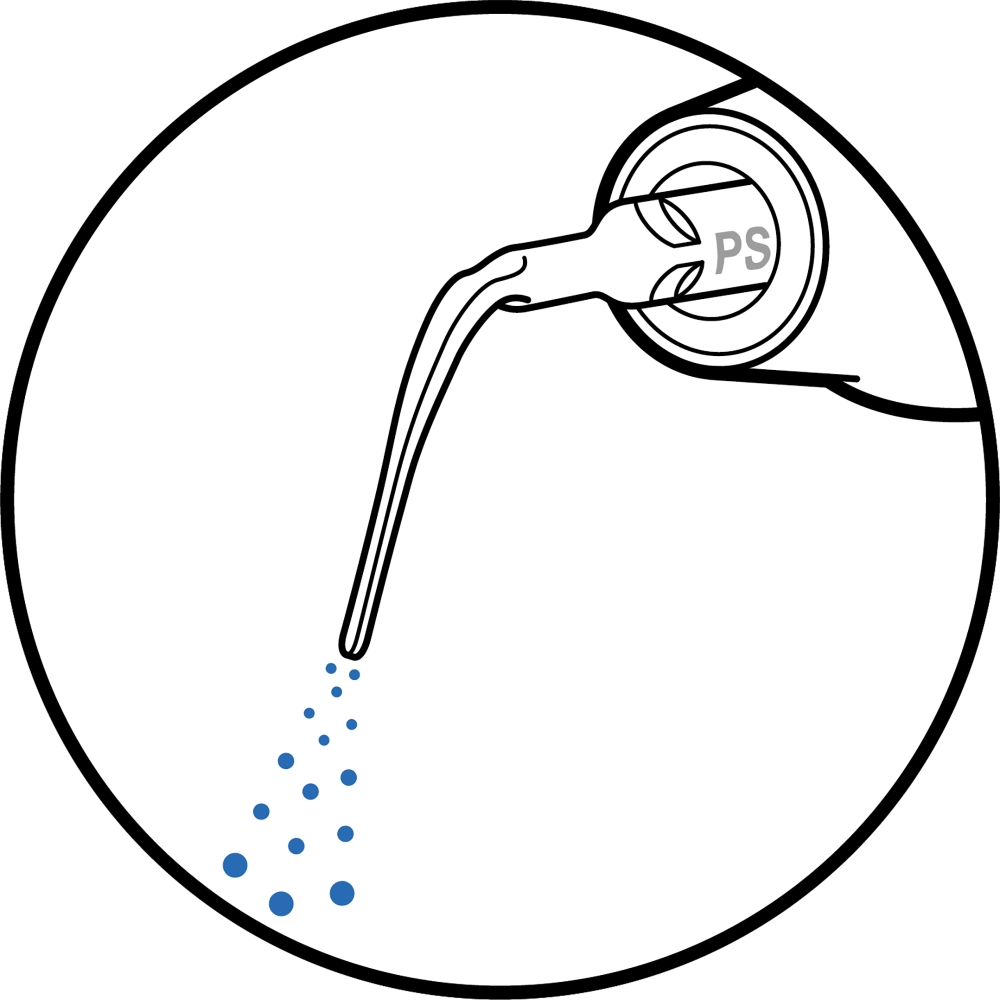
AIRFLOW® Prophylaxis Master
AIRFLOW® Prophylaxis Master is the latest EMS innovation for the "Guided Biofilm Therapy": a unique solution for caries, perio prevention and maintenance. This machine provides painless cleanings with a piezo technology and water heated to body temperature.
Lightscalpel - CO2 Laser
A Lightscalpel CO2 laser is used for tongue-tie releases (also known as a frenectomy).
A laser frenectomy is the laser excision of a frenulum, a small fold of tissue that prevents part of the body from moving too far. The CO2 laser is ideal for cutting and coagulating soft tissue during a frenectomy. The LightScalpel CO2 laser system is a valuable tool in a wide variety of soft-tissue oral laser surgery procedures. The list below names just a few laser-assisted oral laser surgery applications:
- Frenum release/frenectomy
- Abscess (drainage)
- Flap surgery
- Biopsy
- Partial glossectomy
- Homeostasis
- Crown lengthening (soft tissue)
- Incision of infection when used with antibiotic therapy
